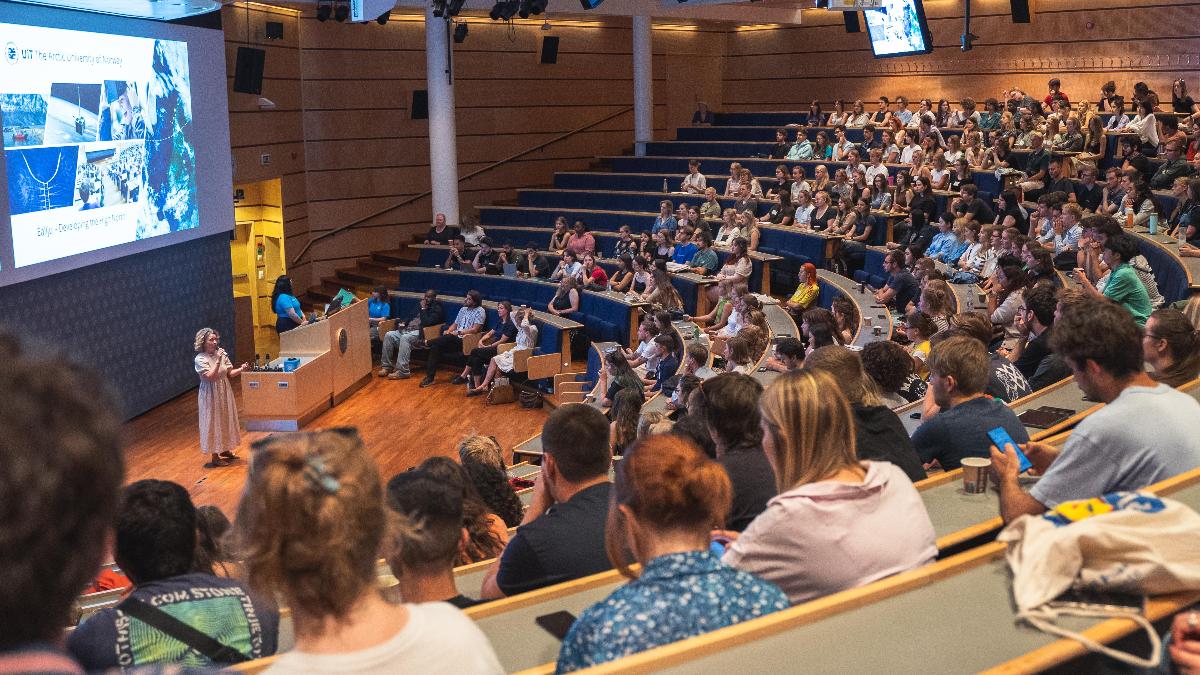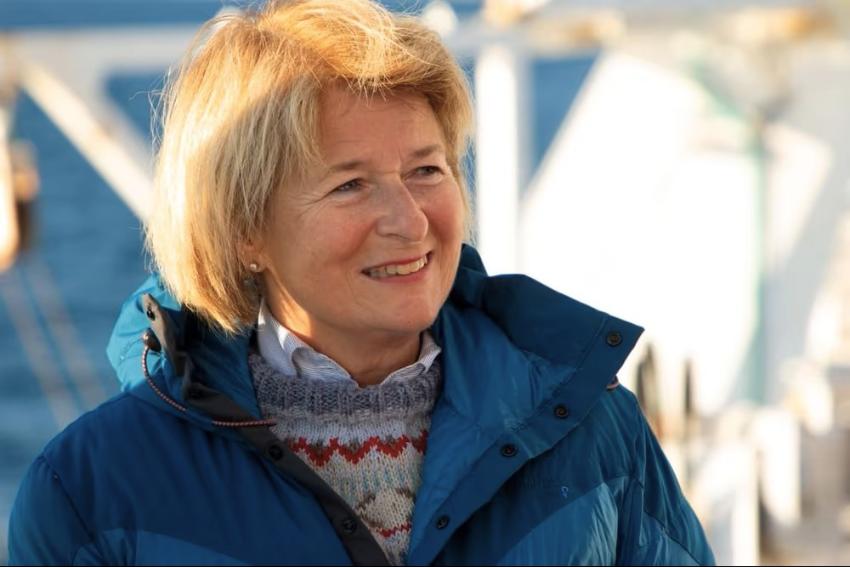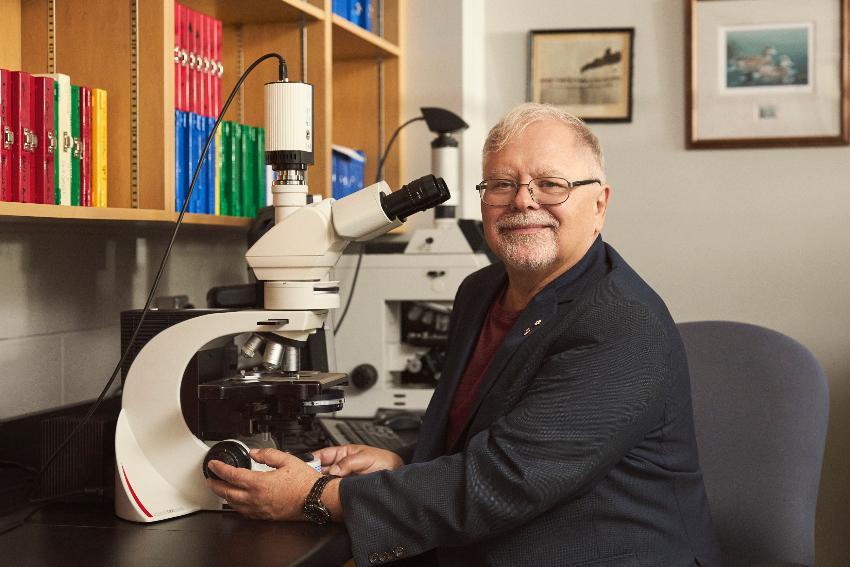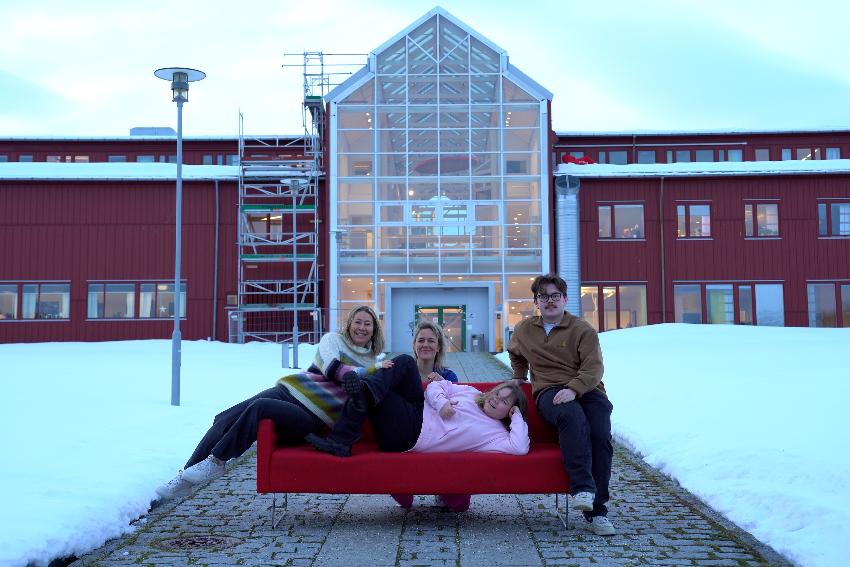"Academia is international and without borders"
The number of exchange students at UiT this year is at the same level as in 2023. UiT will now take measures for even more exchange and internationalization of educational programs.

At the campuses in Tromsø, Alta, Harstad, Narvik, and Svalbard, a total of 574 students from 52 countries will begin new studies and internships. The number of incoming foreign students is on par with last year, when the number was 578.
As last year Germany (103), France (66), and Denmark (45) are the three countries with the highest number of students enrolled at UiT.
This week, a series of events are being held to welcome the foreign students starting at UiT this fall, called Debut Week International. On Wednesday, the students were welcomed in Tromsø by Kathrine Tveiterås, Vice-Rector for Education at UiT.
"Society is changing rapidly now, especially in terms of climate and technology. We need diversity among students to be creative, find new and sustainable solutions, and challenge established mindsets. We hope you are inspired by UiT's motto Eallju and find a way to make it your own," Tveiterås said to the attendees.
To take part in exchange is a very good opportunity to get to know one's field in a different cultural context. Being a foreigner, being included, feeling language barriers, and wondering what different customs mean also make us better at encountering other perspectives and backgrounds.
Facts about new foreign students at UiT - Fall 2024
574 foreign students are taking courses at UiT.
414 are exchange students taking subjects that last one or two semesters.
124 are graduate students, admitted to master's programs or year-long studies.
374 of the exchange students will study in Tromsø, Alta, and Narvik.
40 will study in Svalbard.
12 will participate in Norwegian courses in Narvik.
24 will participate in internships in Tromsø, Alta, and Harstad.
Wants more exchange
Tveiterås emphasizes that UiT not only wants more foreign students to come to UiT but also that all students at UiT have internationalization as part of their education. She believes this can be achieved through learning design that allows for international experiences. Additionally, UiT will make a greater effort to enable students and staff to participate in exchanges, according to Tveiterås.
"To take part in exchange is an excellent form of internationalization, and it is desirable that far more than today choose this as part of their education. Academia is international and without borders. Exchange is a very good opportunity to get to know one's field in a different cultural context. Being a foreigner, being included, feeling language barriers, and wondering what different customs mean also make us better at encountering other perspectives and backgrounds," says Tveiterås.
Another important measure UiT is taking to facilitate internationalization is to establish more exchange agreements or join alliances and networks with universities and research institutions in other countries.
"A lot of good work has been done in recent years. A barrier that is a bit more difficult to address is the students' own commitments in terms of jobs, loans, and family. We must continue to share experiences from those who have traveled – and to work to develop more exchange opportunities, for example of shorter duration," she adds.
Halving of students from outside the EU
This year, 27 graduate students from countries outside the EU and EEA are starting at UiT. This is nearly a halving from last year when 49 students in this category came from Africa, Asia, and North and South America.
The decrease in students coming to UiT from visa-required countries outside the EU and EEA is mainly due to the introduction of tuition fees, according to Tveiterås.
"UiT believes that universities should be able to price studies based on what similar educations cost and that there should be more scholarship schemes so that we can continue to receive students from all over the world. It is an enrichment for all involved," concludes Tveiterås.
-
Nordisk - årsstudium
Varighet: 1 År -
Barnehagelærer - bachelor
Varighet: 3 År -
Organisasjon og ledelse for offentlig sektor - erfaringsbasert master
Varighet: 3 År -
Realfagskurs
Varighet: 1 Semestre -
Filosofi - årsstudium
Varighet: 1 År -
Lektor i språk og samfunnsfag trinn 8-13 - master
Varighet: 5 År -
Bevegelige bilder - bachelor
Varighet: 3 År -
Informatikk, datafag - bachelor
Varighet: 3 År -
Computer Science - master
Varighet: 4 År -
Sikkerhet og beredskap - bachelor
Varighet: 3 År


